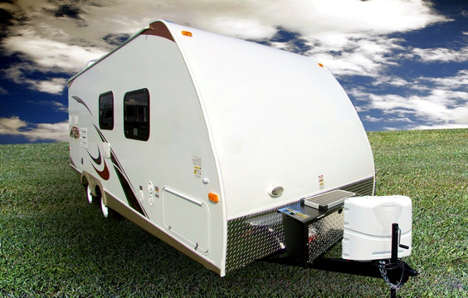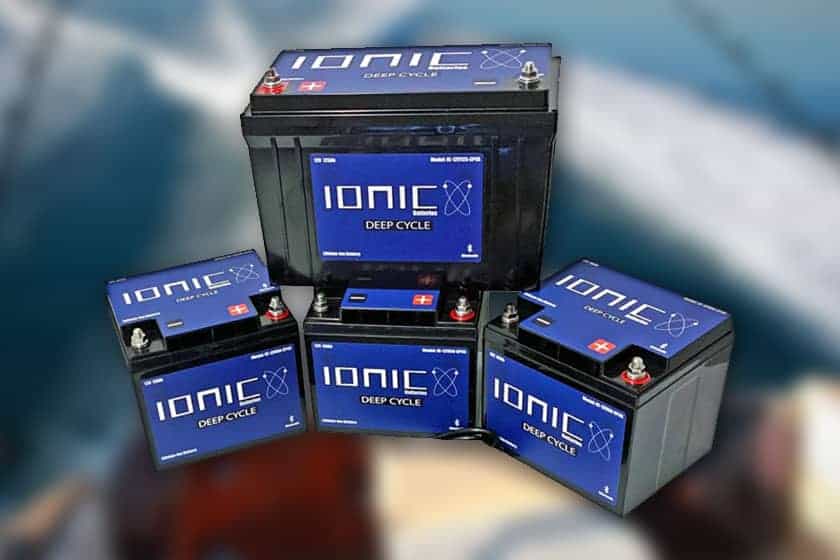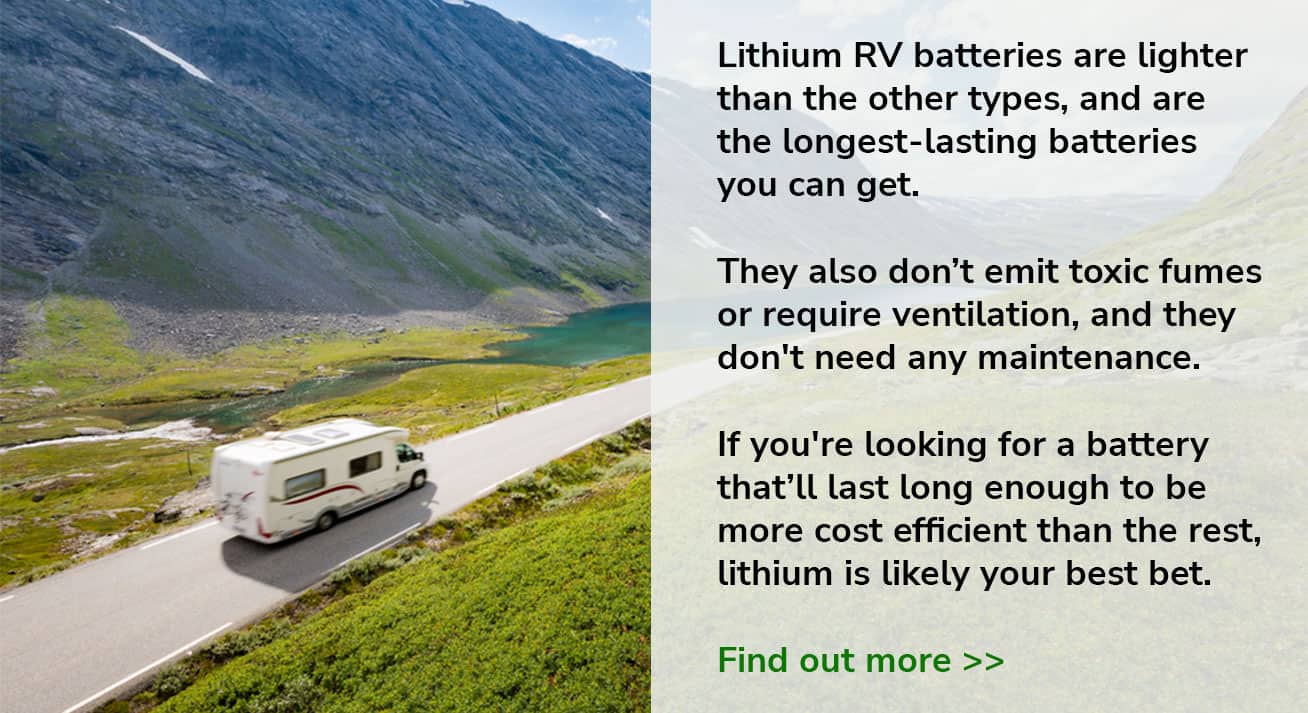Camper Trailer Battery
When venturing into the great outdoors, a reliable camper trailer battery is essential to power your adventure. Camper Trailer Battery A good battery can make all the difference between a comfortable camping trip and a frustrating one. With so many options available, choosing the right camper trailer battery can be overwhelming. Factors such as capacity, type, and maintenance requirements must be considered to ensure you're getting the best bang for your buck. In this article, we'll delve into the world of camper trailer batteries, exploring the key considerations and top picks to keep your camping dreams alive.
Understanding Camper Trailer Battery Essentials
When it comes to camper trailers, one of the most critical components is the battery. A reliable battery ensures that your camper trailer's electrical systems function properly, providing you with a comfortable and enjoyable camping experience. In this section, we'll delve into the world of camper trailer batteries, exploring the key aspects to consider when selecting and maintaining these essential power sources.
Types of Camper Trailer Batteries
Camper trailer batteries come in various types, each with its unique characteristics, advantages, and disadvantages. The most common types of batteries used in camper trailers are:
Deep Cycle Batteries: Designed to provide a steady flow of energy over an extended period, deep cycle batteries are ideal for camper trailers. They can handle multiple discharge-recharge cycles, making them a popular choice.
Starting Batteries: These batteries are designed to provide a high burst of energy to start the engine. While they can be used in camper trailers, they are not recommended as they are not designed for deep cycle applications.
AGM (Absorbed Glass Mat) Batteries: These batteries feature a unique design that eliminates the need for maintenance. They are spill-proof, vibration-resistant, and provide a reliable source of power.
Lithium-Ion Batteries: Lithium-ion batteries are becoming increasingly popular in camper trailers due to their lightweight design, high energy density, and long lifespan.
| Type of Battery | Characteristics | Advantages | Disadvantages |
|---|---|---|---|
| Deep Cycle | Steady flow of energy, multiple discharge-recharge cycles | Reliable, long lifespan | Heavy, expensive |
| Starting | High burst of energy, designed for engine starting | Inexpensive, widely available | Not suitable for deep cycle applications |
| AGM | Maintenance-free, spill-proof, vibration-resistant | Reliable, low maintenance | Expensive, heavy |
| Lithium-Ion | Lightweight, high energy density, long lifespan | Lightweight, high performance | Expensive, sensitive to temperature |
Battery Capacity and Rating
Camper trailer batteries are rated based on their capacity, which is measured in Ampere-hours (Ah). The capacity of a battery determines how long it will last on a single charge. When selecting a battery, consider the total ampere-hours required to power your camper trailer's electrical systems.Camper Trailer Battery
Ampere-hours (Ah): Measures the battery's capacity to provide a steady flow of energy over time.
Cold Cranking Amps (CCA): Measures the battery's ability to start the engine in cold temperatures.
Reserve Capacity (RC): Measures the battery's ability to provide power to the electrical systems in the event of an alternator failure.
Charging and Maintenance
Proper charging and maintenance are crucial to extend the lifespan of your camper trailer battery. When charging, ensure that the battery is fully charged before disconnecting the charger. Regularly check the battery's electrolyte level, and top it off as needed.Camper Trailer Battery
Battery Charger: A device that converts AC power to DC power to charge the battery.
Battery Monitor: A device that tracks the battery's state of charge, voltage, and temperature.
Camper Trailer Battery Installation
When installing a new battery in your camper trailer, ensure that it is properly secured and connected. Follow the manufacturer's instructions for proper installation, and consider consulting a professional if you're unsure.
Battery Tray: A mount that holds the battery in place.
Cable Connections: Ensure that the cables are securely connected to the battery and electrical systems.
Camper Trailer Battery Safety
Camper trailer batteries can be hazardous if not handled properly. Always follow safety precautions when working with batteries, and ensure that they are stored in a well-ventilated area.
Protective Gear: Wear protective gear, such as gloves and safety glasses, when working with batteries.
Ventilation: Ensure that the battery is stored in a well-ventilated area to prevent the buildup of explosive gases.
What size battery do I need for a camper trailer?

The size of the battery needed for a camper trailer depends on several factors, including the type and number of appliances you plan to use, the frequency of use, and the duration of your trips. A general rule of thumb is to calculate your energy needs in ampere-hours (Ah) and then choose a battery that meets or exceeds that requirement.
Determining Your Energy Needs
To determine your energy needs, make a list of the appliances you plan to use in your camper trailer, including lights, fridge, water pump, and any other electrical devices. Calculate the ampere-hour rating of each appliance and add them up. For example:
- Lights: 2 x 10W lights x 5 hours = 100Ah
- Fridge: 1 x 50W fridge x 8 hours = 400Ah
- Water pump: 1 x 20W pump x 2 hours = 40Ah
Total energy needs: 540Ah
Battery Types and Sizes
There are several types of batteries suitable for camper trailers, including deep cycle batteries, AGM batteries, and lithium-ion batteries. Each type has its own advantages and disadvantages. Deep cycle batteries are the most common type used in camper trailers and come in a range of sizes, including 100Ah, 150Ah, 200Ah, and 250Ah.
Factors Affecting Battery Size
Several factors can affect the size of the battery you need, including:
- Frequency of use: If you plan to use your camper trailer frequently, you may need a larger battery to ensure you have enough power.
- Duration of trips: If you plan to take longer trips, you may need a larger battery to provide power for extended periods.
- Ambient temperature: Extreme temperatures can affect battery performance, so you may need a larger battery if you plan to camp in very hot or cold weather.
Battery Maintenance and Monitoring
Proper maintenance and monitoring of your battery are crucial to ensure it lasts as long as possible. This includes:
- Regular charging: Make sure to charge your battery regularly to prevent deep discharging.
- Monitoring state of charge: Use a battery monitor to keep track of your battery's state of charge and prevent over-discharging.
- Cleaning and inspection: Regularly clean and inspect your battery to prevent corrosion and damage.
Upsizing or Downsizing Your Battery
If you're unsure about the size of battery you need, it's often better to err on the side of caution and upsize your battery. However, if you're looking to reduce weight and cost, you can consider downsizing your battery. Just be sure to carefully calculate your energy needs and adjust your appliance usage accordingly.
What are the best batteries for a camper trailer?

When it comes to choosing the best batteries for a camper trailer, there are several factors to consider. The type of battery, its capacity, and its durability are all crucial in ensuring a reliable power supply for your camping adventure. Here are some tips to help you choose the best batteries for your camper trailer:
Deep Cycle Batteries vs. Starting Batteries
When selecting batteries for your camper trailer, it's essential to choose deep cycle batteries over starting batteries. Deep cycle batteries are designed to provide a steady flow of energy over a long period, making them ideal for camping applications. Starting batteries, on the other hand, are meant for high-current bursts to start engines and are not suitable for camping.
Battery Capacity and Type
The capacity of the battery you choose will depend on your energy needs. A higher capacity battery will provide more power, but it will also be heavier and more expensive. There are three main types of batteries: Flooded Lead-Acid, AGM (Absorbed Glass Mat), and Lithium-Ion. AGM batteries are a popular choice for camper trailers due to their maintenance-free design and longer lifespan.
Battery Maintenance and Monitoring
Proper maintenance and monitoring are crucial to extend the life of your batteries. Regularly check the water level, clean the terminals, and monitor the state of charge to prevent overcharging or undercharging. Consider investing in a battery management system to simplify the process.
Battery Brands and Quality
When choosing a battery brand, look for reputable manufacturers that offer high-quality products. Some popular brands for camper trailer batteries include Trojan Battery, East Penn Deka, and Renogy. Be wary of cheap batteries that may not provide the performance and reliability you need.
Upgrading and Sizing Your Battery Bank
If you're upgrading your battery bank or building a new one, consider the total amp-hour capacity you need. A larger battery bank will provide more power, but it will also increase the weight and cost. A good rule of thumb is to size your battery bank based on your energy requirements, taking into account factors like appliance usage and charging sources.
- Calculate your energy requirements based on appliance usage and charging sources.
- Choose a battery type that meets your needs (Flooded Lead-Acid, AGM, or Lithium-Ion).
- Select a reputable brand and consider the warranty and customer support.
How long does a camper trailer battery last?

The lifespan of a camper trailer battery depends on various factors, including the type and quality of the battery, usage patterns, and maintenance habits. On average, a well-maintained deep cycle battery can last for around 5 to 7 years, with some batteries lasting up to 10 years or more.
Factors Affecting Camper Trailer Battery Life
The lifespan of a camper trailer battery is influenced by several factors, including:
- Type of battery: Deep cycle batteries, AGM batteries, and lithium-ion batteries have different lifespans. Deep cycle batteries are designed for frequent charging and discharging, making them a popular choice for camper trailers.
- Usage patterns: The frequency and duration of camping trips, as well as the electrical load placed on the battery, can affect its lifespan. Batteries that are used frequently may not last as long as those used occasionally.
- Maintenance habits: Regular maintenance, such as checking water levels, cleaning terminals, and avoiding deep discharging, can help extend the life of a camper trailer battery.
Signs of a Dying Camper Trailer Battery
If your camper trailer battery is nearing the end of its lifespan, you may notice the following signs:
- Slow engine crank: A dying battery may struggle to turn the engine over, resulting in slow cranking or difficulty starting the engine.
- Dim headlights: If the headlights are dim or difficult to turn on, it may be a sign that the battery is losing its charge.
- Frequent jump-starts: If you find yourself jump-starting the engine frequently, it may be a sign that the battery is no longer holding its charge.
Extending the Life of Your Camper Trailer Battery
To get the most out of your camper trailer battery, follow these tips:
- Avoid deep discharging: Try to keep the battery charge level between 20% and 80% to avoid deep discharging, which can reduce the battery's lifespan.
- Monitor water levels: Check the water levels regularly and top them off as needed to prevent damage to the battery cells.
- Keep the battery clean: Clean the terminals and connections regularly to prevent corrosion and ensure good electrical connections.
Choosing the Right Replacement Battery
When it's time to replace your camper trailer battery, consider the following factors:
- Capacity: Choose a battery with a sufficient capacity to meet your electrical needs.
- Type: Select a battery type that suits your needs, such as a deep cycle, AGM, or lithium-ion battery.
- Brand and quality: Research reputable brands and choose a high-quality battery to ensure a long lifespan.
Properly Disposing of Old Camper Trailer Batteries
When replacing your camper trailer battery, it's essential to dispose of the old battery properly:
- Recycle the battery: Take the old battery to a recycling center or an authorized battery recycling facility.
- Follow local regulations: Check with local authorities for specific regulations regarding the disposal of lead-acid batteries.
- Handle the battery safely: Wear protective gloves and eyewear when handling the old battery to prevent injury.
How to choose a camper battery?

Choosing the right camper battery can be a daunting task, especially with the numerous options available in the market. However, by considering a few key factors, you can make an informed decision that meets your camping needs.
Factors to Consider
When selecting a camper battery, consider the following factors:
- Type of Camping: Will you be camping in cold or hot climates? Do you need a battery that can withstand extreme temperatures?
- Battery Size and Weight: Consider the space available in your camper and the weight of the battery. A larger battery may provide more power, but it may also be heavier and more difficult to handle.
- Ampere-Hour (Ah) Rating: A higher Ah rating indicates a longer battery life. However, it also increases the cost and weight of the battery.
- Battery Chemistry: Lead-acid, AGM, and lithium-ion batteries have different characteristics and advantages. Lead-acid batteries are affordable but heavy, while lithium-ion batteries are lightweight but expensive.
- Budget: Determine how much you are willing to spend on a camper battery. More expensive batteries may offer better performance and longer lifespan.
Understanding Battery Types
There are three main types of camper batteries: lead-acid, AGM, and lithium-ion. Each type has its advantages and disadvantages.
- Lead-Acid Batteries: Affordable and widely available, but heavy and prone to sulfation.
- AGM (Absorbed Glass Mat) Batteries: More expensive than lead-acid batteries, but offer better performance and longer lifespan.
- Lithium-Ion Batteries: Lightweight and high-performance, but expensive and require specialized charging systems.
Battery Maintenance and Care
Proper maintenance and care can extend the lifespan of your camper battery.
- Regularly Check Water Levels: For lead-acid batteries, check water levels every month and top off as necessary.
- Avoid Deep Discharging: Try to keep the battery above 50% charge to prevent deep discharging.
- Store in a Cool, Dry Place: Store the battery in a cool, dry place when not in use to prevent corrosion and damage.
Calculating Your Power Needs
To choose the right camper battery, you need to calculate your power needs.
- Determine Your Power Requirements: Calculate the total power requirement of your camper appliances and devices.
- Consider Your Camping Style: Will you be camping in areas with limited access to power sources?
- Choose a Battery with Adequate Capacity: Select a battery with an Ah rating that meets your power needs.
Battery Warranty and Support
When selecting a camper battery, consider the warranty and support offered by the manufacturer.
- Warranty Period: Look for batteries with a longer warranty period.
- Customer Support: Choose a manufacturer with a good reputation for customer support and service.
- Documentation and Instructions: Ensure the manufacturer provides clear documentation and instructions for maintenance and troubleshooting.
Additional Features to Consider
Some camper batteries come with additional features that can enhance your camping experience.
- Built-in Monitoring Systems: Some batteries come with built-in monitoring systems that track battery performance and alert you to potential issues.
- USB Charging Ports: Some batteries come with USB charging ports for convenient charging of devices.
- Integrated Solar Charging: Some batteries come with integrated solar charging capabilities for off-grid camping.
Frequently Asked Questions
What is the best type of battery for a camper trailer?
When it comes to choosing the best type of battery for a camper trailer, there are several options to consider. Deep cycle batteries are a popular choice because they are designed to provide a steady flow of energy over a long period of time. These batteries are specifically designed to handle the rigors of camping, including powering lights, refrigerators, and other appliances. Lithium-ion batteries are another option, offering a lighter and more efficient alternative to traditional deep cycle batteries. They are also more resistant to extreme temperatures and have a longer lifespan. AGM batteries, or Absorbed Glass Mat batteries, are another type of deep cycle battery that is maintenance-free and offers a high level of reliability.
How do I charge my camper trailer battery?
Charging your camper trailer battery is a crucial step in maintaining its health and ensuring you have a reliable source of power while camping. There are several ways to charge your battery, including solar panels, generator, and shore power. Solar panels are a popular choice because they are environmentally friendly and can be installed on the roof of your camper trailer. Generators are also an option, but they can be noisy and produce emissions. Shore power, or plugging into a electrical hookup, is another way to charge your battery. Regardless of the method you choose, it's important to use a battery charger specifically designed for deep cycle batteries to ensure a safe and efficient charge.
How long will my camper trailer battery last?
The lifespan of a camper trailer battery depends on several factors, including the type of battery, usage, and maintenance. Deep cycle batteries can last for 5-7 years if properly maintained, while lithium-ion batteries can last up to 10 years. AGM batteries have a shorter lifespan, typically ranging from 3-5 years. To extend the life of your battery, it's important to keep it charged, avoid deep discharging, and store it in a cool, dry place when not in use. Regular maintenance, such as checking the electrolyte levels and cleaning the terminals, can also help extend the life of your battery.
Can I use my camper trailer battery to power my appliances?
Yes, your camper trailer battery can be used to power your appliances, but it's important to consider the ampere-hour rating of your battery and the power requirements of your appliances. A higher ampere-hour rating means your battery can provide more power over a longer period of time. You should also consider the voltage of your battery and appliances, as most camper trailer batteries operate at 12 volts. To ensure safe and efficient power distribution, it's recommended to use a DC-DC converter or inverter to convert the voltage and provide a stable power source for your appliances. Additionally, consider the wattage of your appliances and the capacity of your battery to ensure you have enough power to meet your needs.


